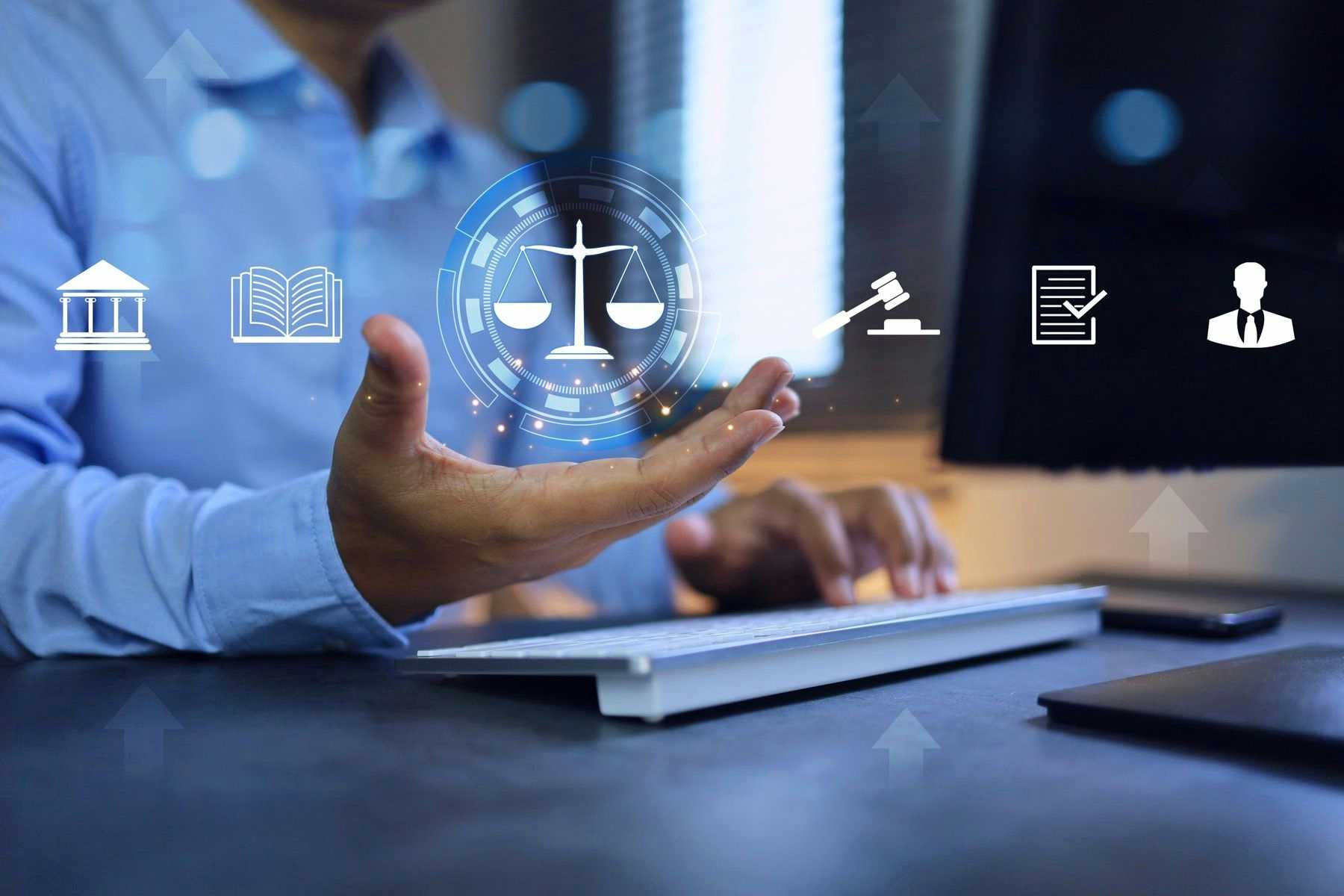Legal AI: How Law Firms Use AI Tools Today
In any legal practice, saving time saves money. In the modern legal industry, Artificial Intelligence (AI) tools are a necessity for law firms. If leveraged strategically, these tools will help firms of all sizes stay competitive and provide exceptional client services.
What is Artificial Intelligence?
The term “AI” includes diverse technologies that enable machines to perform basic tasks that typically require human intelligence. In the legal world, AI includes machine learning algorithms, natural language processing (NLP), and generative language models. None of these tools are “intelligent,” but they can optimize tasks such as legal research, document analysis, and client communication.
Machine Learning
Machine learning algorithms enable computers to learn from data and make predictions or decisions without explicit programming. These algorithms can analyze case law, statutes, and legal documents to extract insights, identify relevant precedents, and predict case outcomes.
Natural Language Processing
Natural Language Processing (NLP) systems can analyze and generate human language, enabling tasks such as summarizing legal texts, drafting contracts, and analyzing witness statements. Through advanced NLP techniques, AI can analyze legal language data sets and extract key information for attorney review. NLP tools include tools like ChatGPT, which are Large Language Models (LLM). LLMs use algorithmic data to generate text in response to prompts. These models generate text that essentially predicts what a response to the prompt could be, which is why they may make up false information, are often awkwardly phrased, and tend to use overly formal language.
How Can Lawyers Use AI Tools in Their Practice?

Discovery Tools
One of the original uses for AI-powered tools was to do initial reviews of massive sets of discoveries with Technology Assisted Reviews (TAR). Expert reviewers input classification guidelines so the AI tool can effectively extract relevant data for further review.
AI Transcription and Note-Taking
AI transcription services can partially automate the time-consuming task of transcribing legal proceedings, meetings, and client consultations. Future AI-powered note-taking tools may be able to summarize discussions, extract action items, and organize information for future reference.
AI-enabled tools like Expert Institute's medical record review services use allow you to opt in to recording and transcription of medical record reviews with our team of doctors, so you can focus on the insights and not taking notes.
Opposition Research
Tools like the Expert Institute's Expert Radar utilizes multiple machine learning models to help attorneys conduct opposition research quickly. Using AI, Expert Radar pulls data from millions of documents, transcripts, and more to classify, recognize, and summarize the data you need for thorough expert research—and to win your next case. Expert Radar gives you the power to make expert research scalable, fast, and comprehensive.
Medical Chronologies
Our AI-powered medical chronology service rapidly distills thousands of pages of medical records into smart, interactive, and searchable documents.
Drafting Demand Letters
AI-generated demand letters can streamline the process of initiating legal proceedings. Although attorneys must review and edit everything they create, AI templates save time for more complex work.
Specialized Generative AI Tools
Platforms like Harvey.ai leverage advanced AI models, backed by OpenAI, to provide specialized legal consultation through natural language interactions. These AI-driven chatbots can do basic client intake tasks, so legal staff and attorney time is spent on helping clients solve their problems. There are a variety of specialized AI tools for lawyers, optimized for different tasks.
As specialized legal AI tools evolve, they may be able to assist with more complex tasks like responding to basic legal inquiries, evaluating intakes for potential legal issues, and providing procedural guidance. Currently, however, many AI chatbots have been found to provide inaccurate advice.
Can Lawyers Safely Use Free AI Tools?
If an attorney does not have access to specialized legal AI tools, can they rely on free tools like ChatGPT, Claude, or Gemini? Like a lot of AI possibilities, the answer is yes, with caveats. Lawyers should never include any client information in their searches, as they will become part of the public dataset the AI is trained on. In addition, free tools like Chat GPT are not trained on a full research database and may fabricate case law that does not exist. Free tools are best used for drafting very simple legal documents, client communications, or marketing copy for legal websites.
Leveraging AI for Enhanced Legal Services

Benefits for Law Firms and Clients
Integrating AI into legal practice offers benefits for law firms and their clients. AI streamlines routine tasks, saving time and resources, which can be allocated to high-value activities such as case strategy development and client advocacy. AI-enhanced legal research tools also lead to better-informed decisions and improved client outcomes.
Ethical Considerations and Challenges
Despite the many benefits, the adoption of AI in the legal industry raises ethical concerns and challenges. Some of the ethical rules implicated include the duties of competence and confidentiality and the duty to supervise. There may be professional malpractice liability if lawyers rely on inaccuracies in AI-generated analyses. There have already been several cases of attorneys sanctioned or fired for relying on AI-fabricated case law.
Additionally, the widespread use of AI tools can support the expansion of Alternative Legal Service Providers, a controversial issue on its own.
The reliance on AI algorithms may also exacerbate biases inherent in legal systems, potentially compromising fairness and justice.
The Future of the AI-Powered Law Firm
Augmenting, Not Replacing, Legal Professionals
Make no mistake, AI tools cannot replace attorneys in providing the complex legal services that attorneys offer their clients. AI can serve as a valuable tool for augmenting legal professionals' capabilities and improving overall efficiency. By harnessing the power of AI, lawyers can focus on higher-order tasks such as client counseling, advocacy, and complex legal reasoning, ultimately delivering superior value to their clients.
AI tools may also be used to improve access to justice issues by simplifying court forms and processes and providing simplified explanations of legal issues to people who cannot access a lawyer.
What to Watch for in 2024 and 2025
As AI technologies continue to evolve, the legal industry can expect further advancements in areas such as predictive analytics, contract automation, and personalized legal services. Innovations in AI-powered legal research platforms, virtual legal assistants, and case management systems will reshape the landscape of legal practice in law firms and in-house counsel. Attorneys should stay up to date on AI developments and integrate these technologies strategically to stay competitive in the legal market.
About the author
Seth Mills, J.D.
Seth Mills, J.D., a career counselor at New York Law School, has a substantial background in legal education and public interest initiatives. Currently serving as the Director of Public Interest & Pro Bono Initiatives and an Adjunct Professor for the Law Office Externship Seminar at New York Law School, Seth focuses on guiding law students in their professional development and legal externship experiences.
Prior to these roles, Seth was a Legal Content Writer for the Expert Institute, contributing to the development and curation of legal content. At Lawline.com, Seth held multiple positions, including Senior Program Attorney and Managing Blog Editor, where he was responsible for creating legal educational materials and managing legal publications.
Seth's legal career began as an Associate Attorney at Sterling Analytics Group, providing a foundation in practical legal work. Additionally, Seth volunteered as a Policy Advocate with the Police Reform Organizing Project (PROP), demonstrating a commitment to public interest law.
In terms of education, Seth earned a J.D. cum laude from New York Law School, where they were involved in NYLS OUTlaws and the Criminal Law Society. Seth also holds a Bachelor of Arts in Linguistics from Bard College at Simon's Rock. Their educational and professional experiences reflect a deep commitment to legal education, public interest law, and the mentoring of future legal professionals.
A Sample Voir Dire: How To Qualify An Expert Witness
Download free white paperChallenging Opposing Experts: Advanced Research Techniques
Download free white paperCross Examining Expert Witnesses: The Ultimate Guide
Download free white paper
Subscribe to our newsletter
Join our newsletter to stay up to date on legal news, insights and product updates from Expert Institute.



